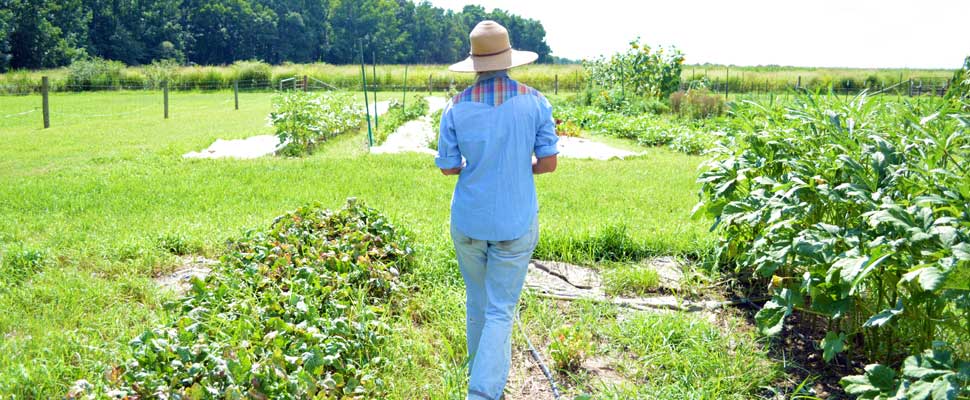If you’ve ever tried to grow a garden, you know how hard it can be – or at least how much can go wrong. Bugs, weeds, too much water, not enough water, too much sun, not enough sun – the list goes on and on. So we asked NC State’s Agroecology Education Farm manager Allison Reeves for some gardening tips that might help the rest of us grow a better vegetable garden.
Test Your Soil
Good soil is the foundation for good garden growth. Yet many of us don’t have a clue whether our soil is healthy or in dire need of specific nutrients. If you live in North Carolina, you can have a soil sample tested for free, which will let you know what to do in order to restore your soil to optimal growing conditions.
Map Your Garden
Did you know that this season’s pests can become next season’s nightmare? Some bugs can overwinter in your garden, so if you plant the same type of plant in the same area of your garden the next year, you might run into the same pest woes you had the prior year. If you had squash in one part of the garden last year, flip flop your garden layout so that squash are planted on the other side for next season. What’s the easiest way to remember? Each season make a map of what you plant and where.
Watch Those Weeds

In an area where you don’t want any plant growth, vinegar may be all that’s required to boot unwanted weed and grass growth. This common household cleaner is best applied to weeds and unwanted vegetation via a spray bottle. Vinegar is not discerning, so be sure that you only spray plants you don’t want since vinegar can also kill plants you actually like. That’s why it’s not recommended for lawn weeds, but is great for getting rid of plants that grow through the cracks in driveways, walkways or patios. Check out these tips for using vinegar as a weed killer
To keep weeds at bay in a vegetable garden, place cardboard in the rows in between your crops. The cardboard acts as a natural barrier, slowing weed growth temporarily.
Another natural weed option is solarizing, which involves covering weed-prone soil with clear plastic sheets that heat the soil and prevent growth of weeds and pests. This guide will show you exactly what to buy and how to set up this simple, non-chemical form of weed control.
Want to learn more? NC State’s Agroecology Education Farm offers workshops and volunteer hours where you can learn more about gardening. Check out their Facebook page for the latest news
